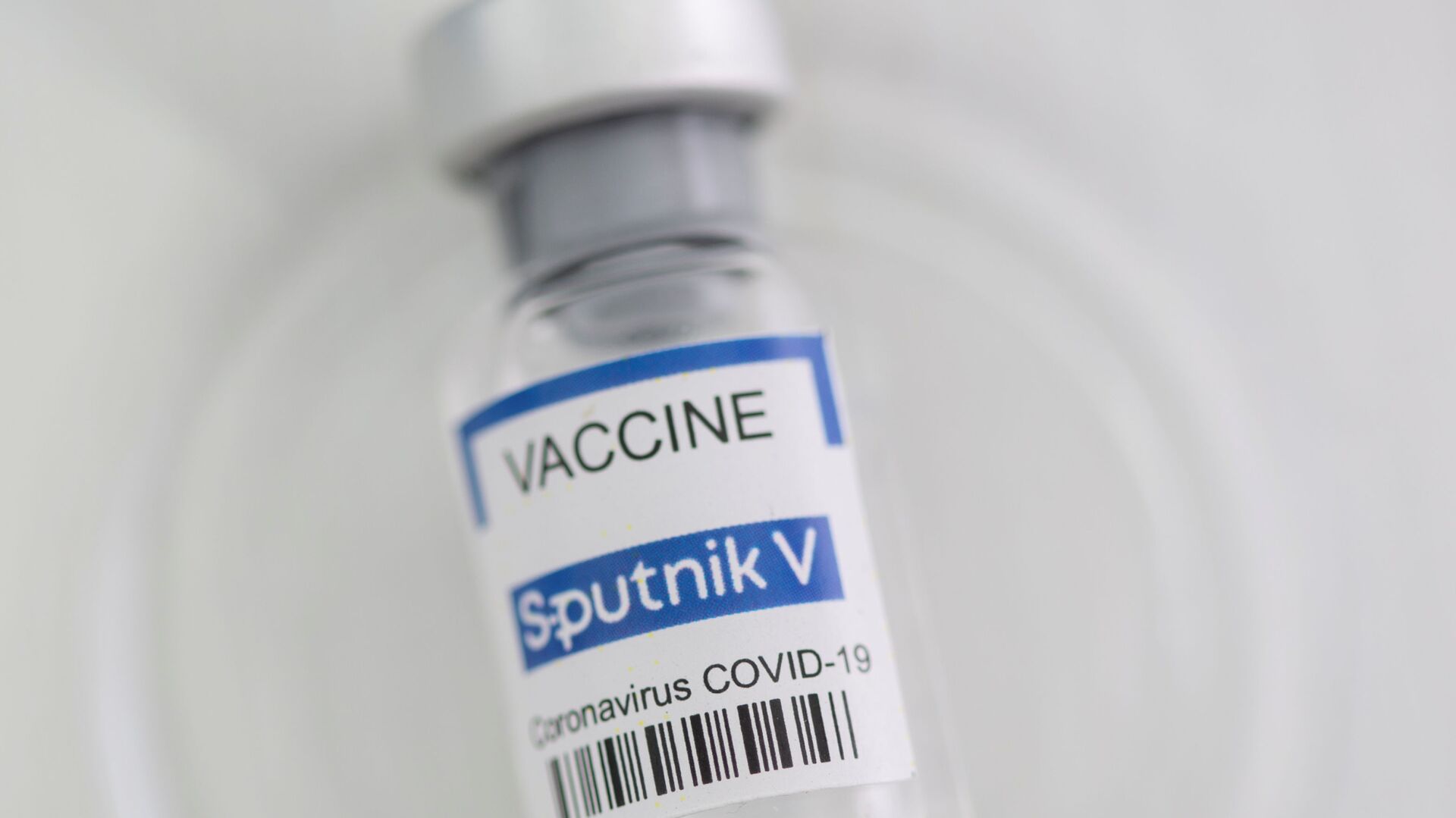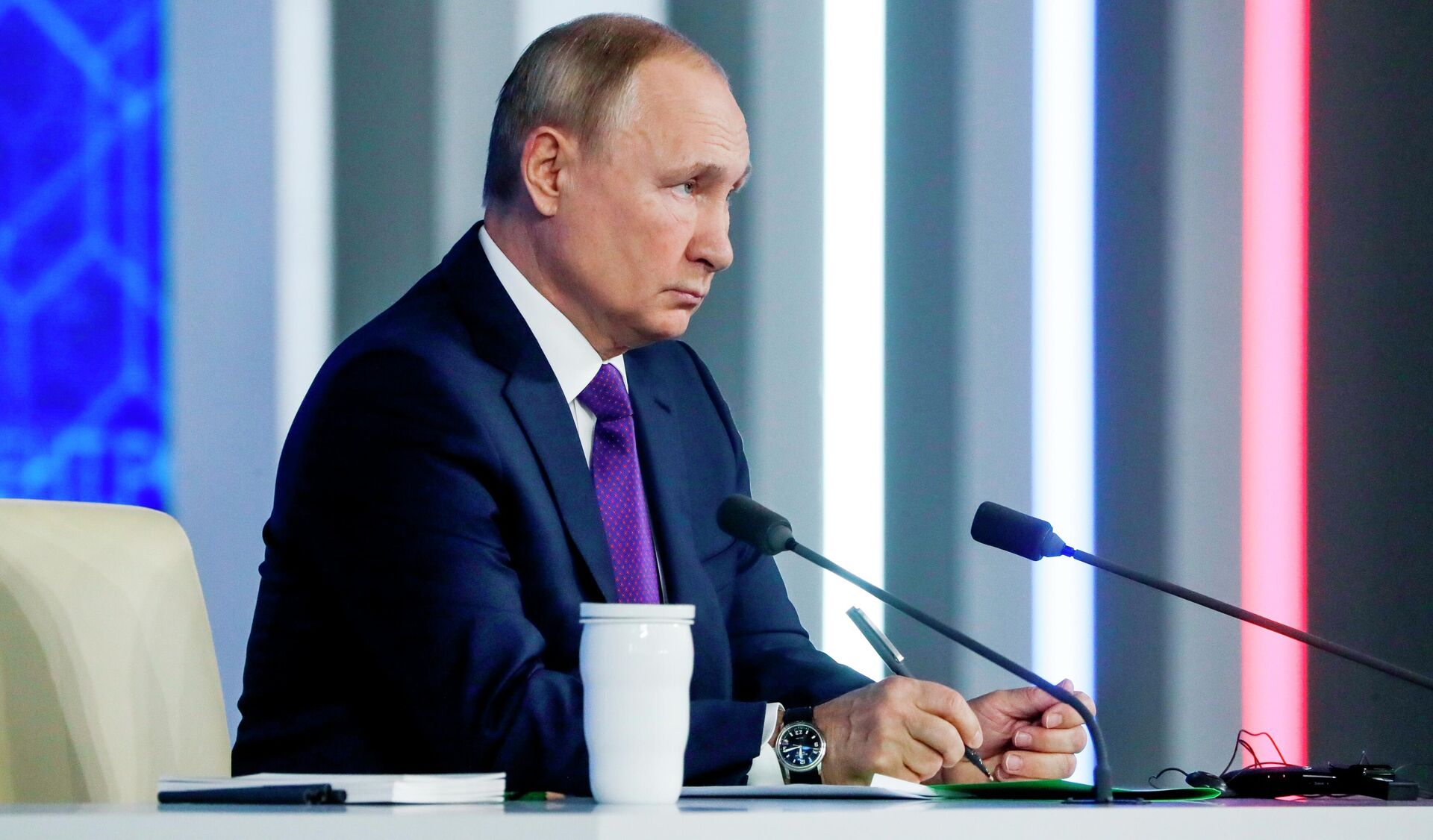https://sputnikglobe.com/20211228/sputnik-v-developers-to-putin-trials-show-the-russian-vaccine-neutralises-omicron-strain-1091858897.html
Sputnik V Developers to Putin: Trials Show the Russian Vaccine Neutralises Omicron Strain
Sputnik V Developers to Putin: Trials Show the Russian Vaccine Neutralises Omicron Strain
Sputnik International
The new variant, discovered in South Africa last month, proved to be highly contagious and has become the dominant COVID-19 strain in many countries across the world.
2021-12-28T11:47+0000
2021-12-28T11:47+0000
2021-12-28T12:19+0000
russia
vladimir putin
vaccine
sputnik v vaccine
omicron covid strain
https://cdn1.img.sputnikglobe.com/img/07e5/05/09/1082841328_0:141:3141:1907_1920x0_80_0_0_5efa5e2271812813545254c55ab15e01.jpg
The Russian president also stressed that the current level of immunisation (around 56 percent) is not enough, as Russia should aim for 90-95 percent.The statement confirms preliminary reports from the Russian Direct Investment Fund saying that Sputnik V "has demonstrated 3-7x less of a reduction in virus-neutralising activity against Omicron as compared to data from other vaccine producers".In the meantime, Anna Popova, head of the Russian consumer rights watchdog Rospotrebnadzor, said that the strain is currently not dominant in Russia. According to her, data from African countries shows that the variant is highly transmissible, but the course of the disease is not as grave as for other COVID-19 strains.The Omicron was initially detected in South Africa and Botswana in November and sparked major concerns due to its high number of mutations (32). The WHO said it was a variant of concern and warned that it may prove to be more transmissible and dangerous than other strains.
Sputnik International
feedback@sputniknews.com
+74956456601
MIA „Rossiya Segodnya“
2021
Evgeny Mikhaylov
https://cdn1.img.sputnikglobe.com/img/07e4/09/07/1080390164_0:0:1440:1440_100x100_80_0_0_46c187f2ab0908f86849a7d09a7def57.jpg
Evgeny Mikhaylov
https://cdn1.img.sputnikglobe.com/img/07e4/09/07/1080390164_0:0:1440:1440_100x100_80_0_0_46c187f2ab0908f86849a7d09a7def57.jpg
News
en_EN
Sputnik International
feedback@sputniknews.com
+74956456601
MIA „Rossiya Segodnya“
Sputnik International
feedback@sputniknews.com
+74956456601
MIA „Rossiya Segodnya“
Evgeny Mikhaylov
https://cdn1.img.sputnikglobe.com/img/07e4/09/07/1080390164_0:0:1440:1440_100x100_80_0_0_46c187f2ab0908f86849a7d09a7def57.jpg
omicron, sputnik neutralises omicron strain, omicron variant
omicron, sputnik neutralises omicron strain, omicron variant
Sputnik V Developers to Putin: Trials Show the Russian Vaccine Neutralises Omicron Strain
11:47 GMT 28.12.2021 (Updated: 12:19 GMT 28.12.2021) The new variant, discovered in South Africa last month, proved to be highly contagious and has become the dominant COVID-19 strain in many countries across the world.
"I spoke with the head of the Gameleya institute, they conducted a study, and Sputnik V will definitely neutralise the new omicron variant", Putin said during the ongoing informal summit of the Commonwealth of Independent States. "He told me that only clinical trials can give a final answer, but the level of [Omicron] neutralisation is very high".
The Russian president also stressed that the current level of immunisation (around 56 percent) is not enough, as Russia should aim for 90-95 percent.
The statement confirms preliminary reports from the Russian Direct Investment Fund saying that Sputnik V "has demonstrated 3-7x less of a reduction in
virus-neutralising activity against Omicron as compared to data from other vaccine producers".
In the meantime, Anna Popova, head of the Russian consumer rights watchdog Rospotrebnadzor, said that the strain is currently not dominant in Russia. According to her, data from African countries shows that the variant is highly transmissible, but the course of the disease is not as grave as for other COVID-19 strains.
The Omicron was initially detected in South Africa and Botswana in November and sparked major concerns due to its high number of mutations (32). The WHO said it was a variant of concern and warned that it may prove to be more transmissible and dangerous than other strains.




